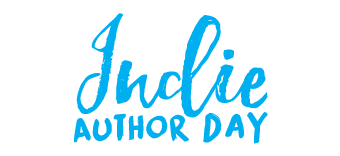Guest Post: LuLu
5 Basics for Creating a Marketing Plan That Doesn’t Suck
At Lulu, we have hundreds of thousands of authors, and each one has a different approach to marketing. But, one thing all successful authors have in common, is that they sell their brand, not just their book.
Now, let me explain why this is important.
Unless you’re the offspring of Stephen King or JK Rowling, there’s a good chance the first book you write will not be the one that gets you into the literary hall of fame. It may not even be the second one. Or the third. The important thing to remember is to keep writing and keep developing your author brand. Millions of books come out every day, but there is only one of you. So, focus on the one thing that no other author has. You!
In the webinar we created for Indie Author Day, we laid out 5 steps to building and marketing your author brand that will get you on the right track. I’ll list them here as well, with a bit more information and insight.
1. Get Into the Right Mindset
This is SO important! Even if you completed the other 4 steps perfectly, you will not succeed if you don’t nail this one first. Stack the odds in your favor by starting with a very clear picture of what you want from your writing career. Then, be ruthless (in a friendly way) about attaining it. If you’re unable to articulate exactly what you’re working towards, you’ll never get there (more on that in step 3).
Writing is a huge undertaking, and so is selling and promoting. And, as an indie author, chances are, all of these things are falling under your job description (lucky you!). If the thought of selling yourself intimidates you, and it probably does, then help yourself out by getting a fresh perspective on it. You wrote your book to help people, right? That could be by providing them with the information they may not have had otherwise, or entertaining them for a few hours. Either way, you’re offering something of value to your audience. So, always remember, you’re not selling vacuums door to door, you’re providing a useful service and sharing knowledge.
2. Understand Your Target Market
Also very, very important. I’ll try not to say that after each header, but it’s tough not to! Know who you’re marketing too! Who are these people? Where do they hang out? How do they get information? How do they find new books to read? What clubs are they in? Going through a few exercises like this can help you build a “reader persona”. Get familiar with it. Heck, even take it to dinner. It won’t cost anything since it’s essentially an imaginary friend, so make sure you spend time with the personas you develop so you can meet your readers where they are.
Once you’ve become besties with your reader personas, utilize free tools like Google Trends and Answerthepublic.com to see what keywords are being searched and questions are being asked by your ideal audience.
3. Plan Marketing Around Your Goals
Makes sense, right? So, first, you need to set your goals. Are you trying to spread information? Sell 100 copies in one month? Hit the best seller list? Each author has a different definition of success, so decide what yours is and create a marketing plan that will get you there. Then, get after it.
4. Sell Your Brand, Not Just Your Book
But seriously, this is the most important one. At least right up there with 1 and 2. When we get to meet our fabulous authors, they always ask about the best way to market their book. And the answer is easy – you don’t focus solely on your book! You market yourself and the book is an extension of you. Your book launch will come and go, but what remains is you. I know the idea of selling yourself is intimidating, but since you’ve got your mind right, you’ll remember that you’re not selling anything. You’re providing useful information to your community of readers. So, let them know you’re the one giving it to them and establish yourself as an authority by providing insights on a regular basis via your website, blog posts, email lists and social media.
Then, use it or lose it! Don’t put tons of time and energy into building your platform and then forget about it. Tools like Google Alerts, Hootsuite, SumAll, and BuzzSumo can help you manage, monitor and keep track of social engagement. Social media is a two-way street, so don’t ignore comments or engagement and only talk about yourself. Get in there and mingle with your community! Even negative comments can provide a great opportunity to win over new readers.
5. Get Creative and Have Fun!
You already know what I’m going to say. But just in case you don’t – this is incredibly important! If you’re not having fun, you’re doing something wrong. That’s not to say the whole process will be a barrel of laughs, but you should be energized and excited by your marketing efforts, not frustrated and drained. So, if you notice that one particular platform or social media channel is especially difficult for you, then take a step back and focus your energy on the things you enjoy. If you’re having a good time, your readers will, too.
Don’t be afraid to step outside the box! As I mentioned earlier, every author has a different process for marketing their brand and reaching their audience, so don’t feel like you can only do things that have been done before. In fact, challenge yourself to do things you haven’t seen before. Think about different venues to host events, such as farmer’s markets, craft fairs, meet-ups (of all types, not just writing groups) and even restaurants or bars that share a theme with your brand. People are more attracted to events that feel like parties, so give them a reason to get down!
There you have it! 5 tips that will help you lay the foundation for a marketing plan that doesn’t suck. You can find more resources to help you on your journey in our Toolkit, as well as on our Blog.
Lulu offers you the expertise, independence and flexibility to create, buy and share what you love with the world. We are passionate about providing a remarkable experience for you to tell stories, share knowledge and fulfill your creative potential.


I keep hearing the same advice: “find out who your target market it.” It’s obviously good advice, but HOW does one find out who reads fiction? Sure it’s easy if you write parenting books or “how to find a husband.” But what if you write genre fiction? Where do you go to find out who reads that stuff?
Hi Delani! I would recommend creating a reader persona to help find your audience. Think of who your ideal reader would be. Who do you hope finds your book? Who do you think will benefit from it the most? For example, if I was writing a fiction story about a roadtrip, I would assume that people who like to travel would get the most out of it.
So, I would then begin to think about what websites, blogs, stores and brands people who like to travel associate with. Where do they go to get their information? What websites or stores do they frequent? Where do they like to go on the weekends? What books are they reading now, and how did they find them?